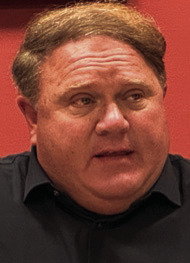Trial lawyers' lobby turns up the heat
By By Buddy Bynum / editor
August 25, 2002
Mississippi's powerful trial lawyers believe they are on the verge of an unmitigated disaster in the tort reform movement, so they're preparing to spend mega-dollars to turn up the heat on legislators in advance of a Sept. 5 special session.
These "anti-reformers" the trial lawyers who have made hundreds of millions of dollars taking advantage of a flawed civil justice system believe they suffered a setback when House members of a joint tort reform committee decided last week to issue their own report on how to change Mississippi's civil justice system.
Details of House and Senate members' recommendations vary. But the fact that the House side suggested a $500,000 cap for pain and suffering awards if only in medical malpractice lawsuits was a huge blow to the trial lawyers' position. They want no limits, the way it is now. Senators suggested a broader cap of $500,000 for pain and suffering awards in all types of lawsuits business or medical.
The House recommended establishing an insurance pool for doctors, nursing homes and other medical providers. The Senate did not vote on such a pool. And serious discussion is also being given to revisions in how lawyers chose venues and judges they feel would be friendly to their side of a case.
Reform movement
A bill apparently acceptable to trial lawyers offered by state Rep. George Flaggs, D-Vicksburg, was narrowly defeated because reformers on the special committee didn't think it went far enough toward real reform.
Four House members on the special committee who are also lawyers three Democrats and a Republican are fighting for reform by standing up to the trial lawyers' lobby under heavy pressure. They are Rep. Jay Eades, D-Oxford; Rep. Jeff Smith, D-Columbus; Rep. Bubba Pierce, D-Leakesville; and Rep. Jim Simpson, R-Long Beach. They were supported in the key votes by Reps. Mary Ann Stevens, D-West; Wanda Jennings, R-Southaven; and Chester Masterson, R-Vicksburg.
The four conservative lawyer/lawmakers are resisting great pressure and seem to want to do the right thing. My guess is that their reasonable approach more accurately reflects the position of most lawyers in Mississippi.
Behind the scenes maneuvering in the special study committee was intense and, while trial lawyers probably wouldn't admit it publicly, they are clearly alarmed that the tort reform movement has taken a turn against them.
Lawyers are being urged to send letters to their current and former clients, telling them to put pressure on their local legislators. The basic message is to oppose damage award caps and changes to the civil justice system.
Don't know who your local legislator is? No problem, the lawyers' lobby can get that information to you, along with who voted against their side. It's becoming a game of pressure, pressure, pressure and one law firm reportedly sent out more than 3,000 letters to clients and former clients last week in a frantic effort to stem what they must see as a tide turning against them.
Tide turning?
If, indeed, such a tide is turning, it's because of at least two things:
The departure of doctors from Mississippi is a truly scary illustration of how a warped civil justice system and the high cost of medical malpractice insurance directly and adversely affects the quality of health care in this state; and,
Other businesspeople are genuinely sick and tired of a few rich lawyers taking advantage of "the system" to shop for favorable judges and venues, and then getting outrageous damage awards that tend to drive up the costs of doing business for everyone else.
Gov. Ronnie Musgrove late last week set a Sept. 5 date for a special legislative session under a bizarre arrangement that requires lawmakers to deal with funding for private prisons before they can get to the issue of medical malpractice limits or general civil justice reform.
His call may be brilliant politics, but it remains to be seen whether it results in sound policy.
The attitude of some lawmakers such as trial lawyer and key committee chairman Rep. Ed Blackmon, D-Canton, who told the Associated Press that "We're not going to be able to resolve the differences" will never produce constructive reform.
Even so, I continue to think the two houses in the Legislature can resolve their differences and act to restore confidence in the fairness of the civil justice system.













